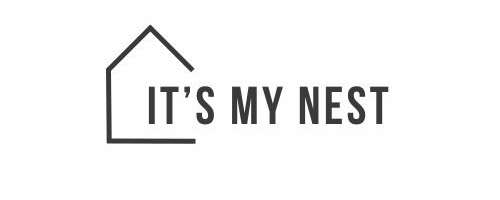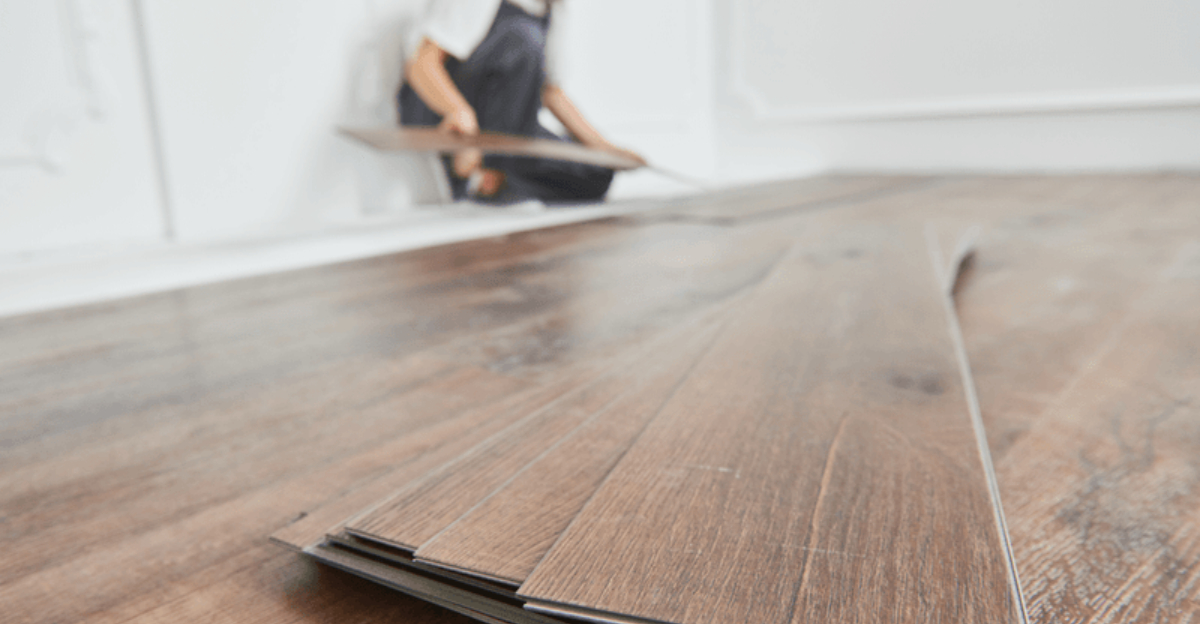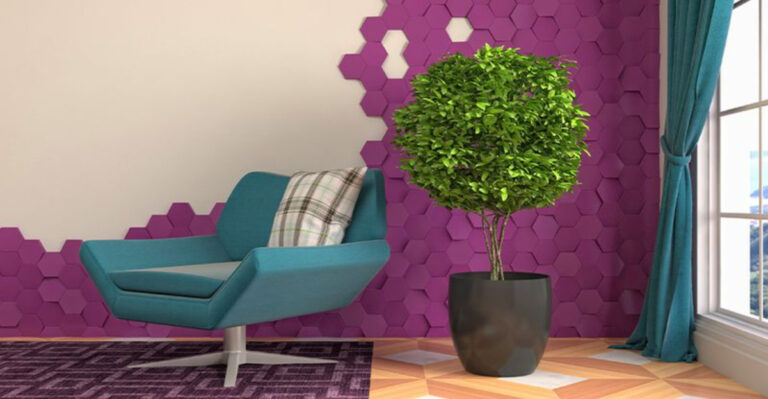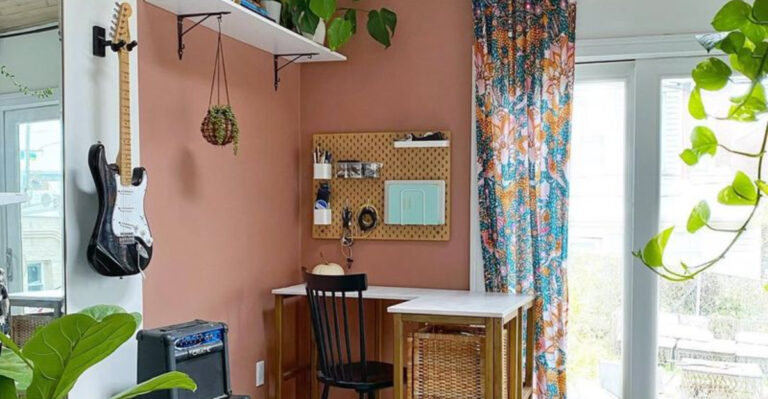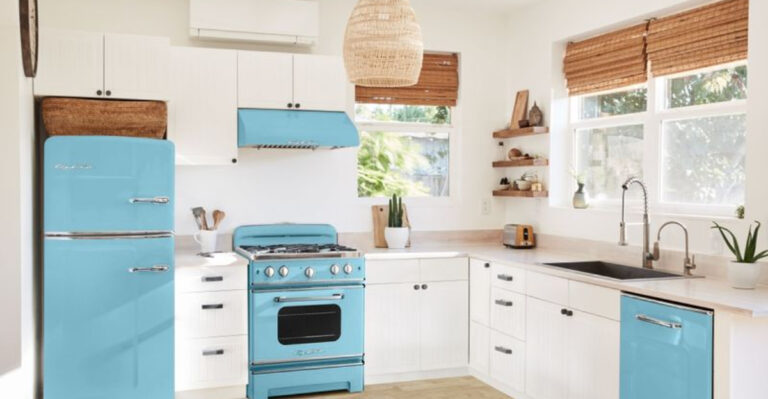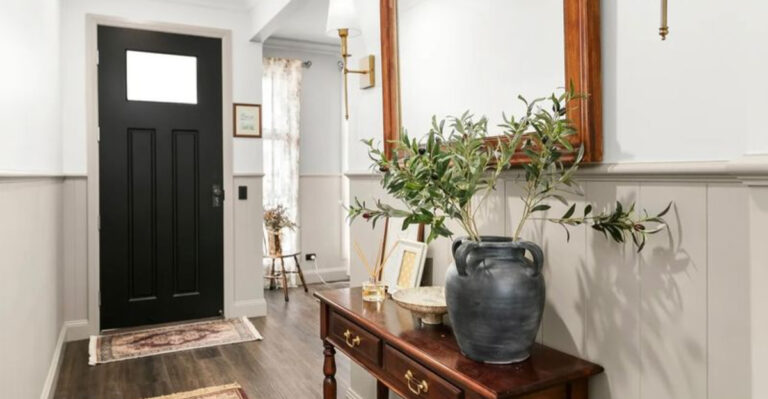15 Most Common Types Of Vinyl Flooring And Which Is Most Durable
Vinyl flooring has become a homeowner favorite thanks to its affordability, impressive water resistance, and stunning variety of styles. Whether you’re renovating a bathroom or updating your entire home, vinyl offers options for every budget and design preference.
Understanding the differences between vinyl types helps you choose the perfect flooring that balances looks, performance, and longevity for your specific needs.
1. Luxury Vinyl Plank (LVP)
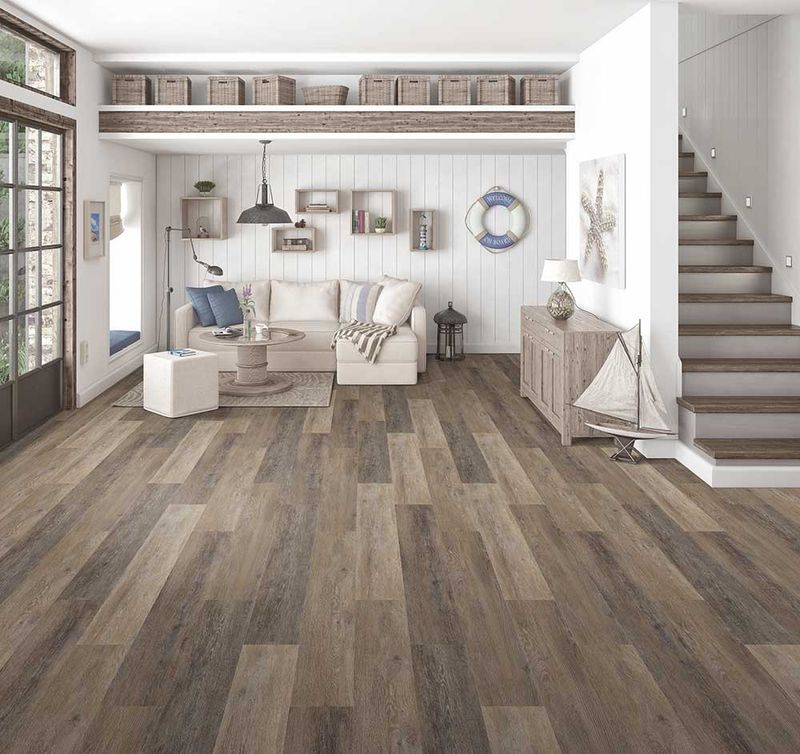
Designed to mimic hardwood, LVP features realistic wood grain patterns and textures that fool even discerning eyes. The multi-layer construction includes a wear layer that protects against scratches and stains.
Pros: Waterproof, warm underfoot, easy installation with click-lock systems, and suitable for any room. Cons: Premium pricing compared to basic vinyl. Durability Rating: 8/10
2. Sheet Vinyl Flooring
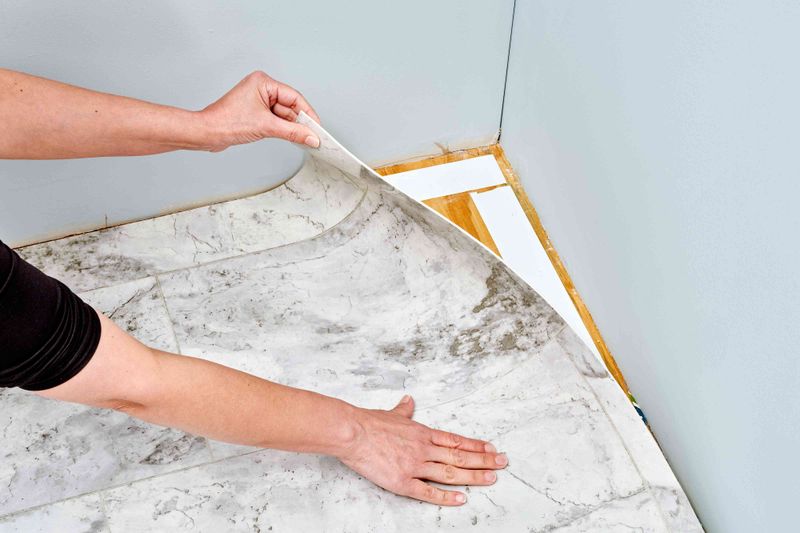
The original vinyl format comes in large, flexible rolls typically 6 or 12 feet wide. Installation creates virtually seamless floors perfect for moisture-prone spaces like bathrooms and laundry rooms.
Pros: Budget-friendly, minimal seams for water protection, and available in countless patterns. Cons: Professional installation recommended. Durability Rating: 6/10
3. Vinyl Composition Tile (VCT)

Found in countless commercial settings, VCT consists of vinyl chips compressed with limestone and color pigments. The resulting 12×12 inch squares create the familiar checkerboard patterns seen in schools and hospitals.
Pros: Extremely affordable, replaceable individual tiles, and commercial-grade durability. Cons: Requires regular waxing and maintenance. Durability Rating: 7/10
4. Stone Polymer Composite (SPC)
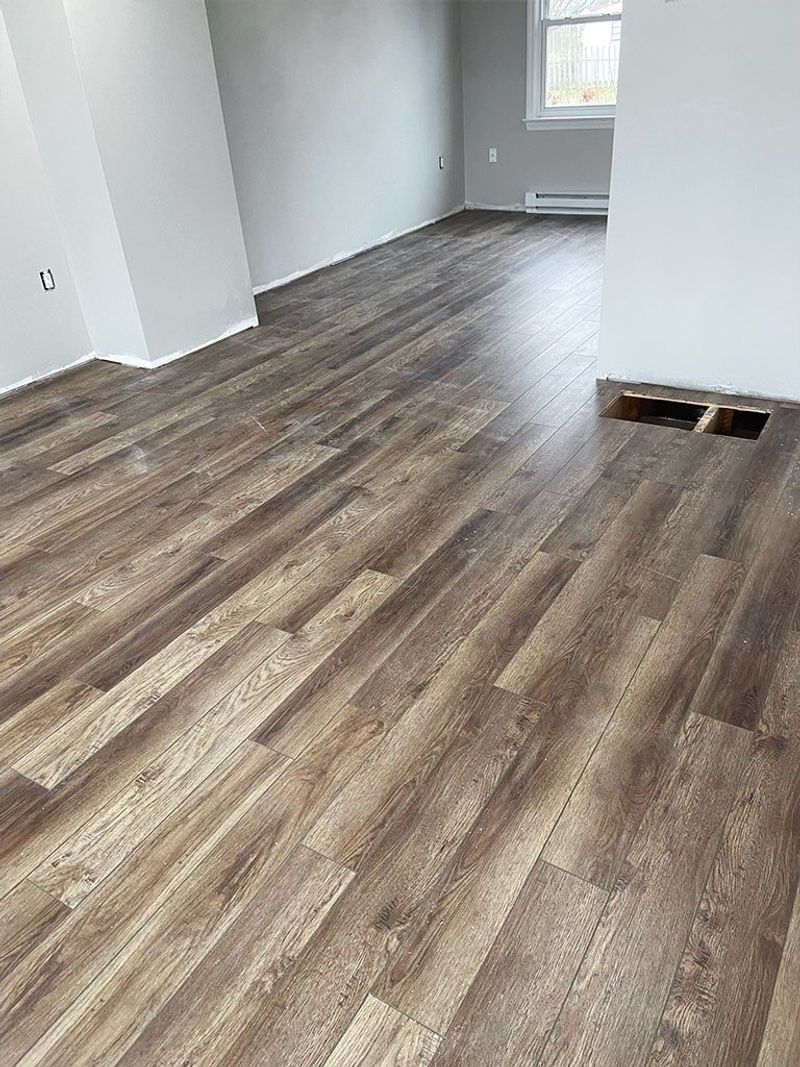
Often called rigid core vinyl, SPC contains limestone mixed with PVC, creating an ultra-stable core that won’t expand or contract. The rigid construction stands up to heavy furniture and high traffic without denting.
Pros: Superior dent resistance, thinner profile, perfect for uneven subfloors, and excellent stability. Cons: Harder underfoot feel. Durability Rating: 9/10
5. Wood Polymer Composite (WPC)
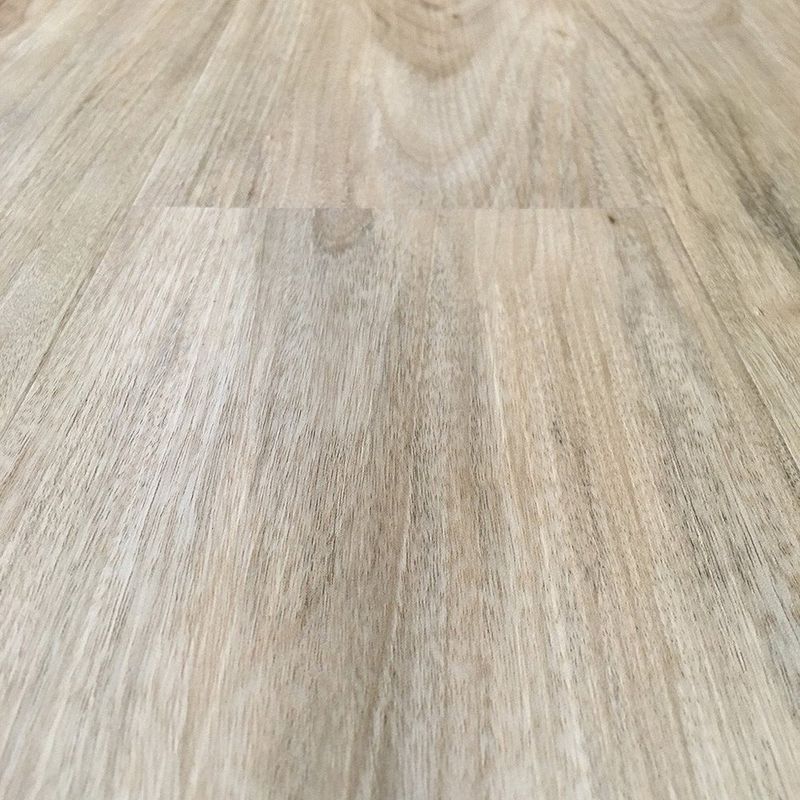
The luxury choice in vinyl flooring, WPC features a core layer made from wood pulp and plastic polymers. This creates a slightly softer feel underfoot compared to SPC while maintaining impressive waterproofing.
Pros: 100% waterproof, comfortable cushioned feel, excellent sound insulation, and conceals subfloor imperfections. Cons: Higher price point. Durability Rating: 8/10
6. Luxury Vinyl Tile (LVT)
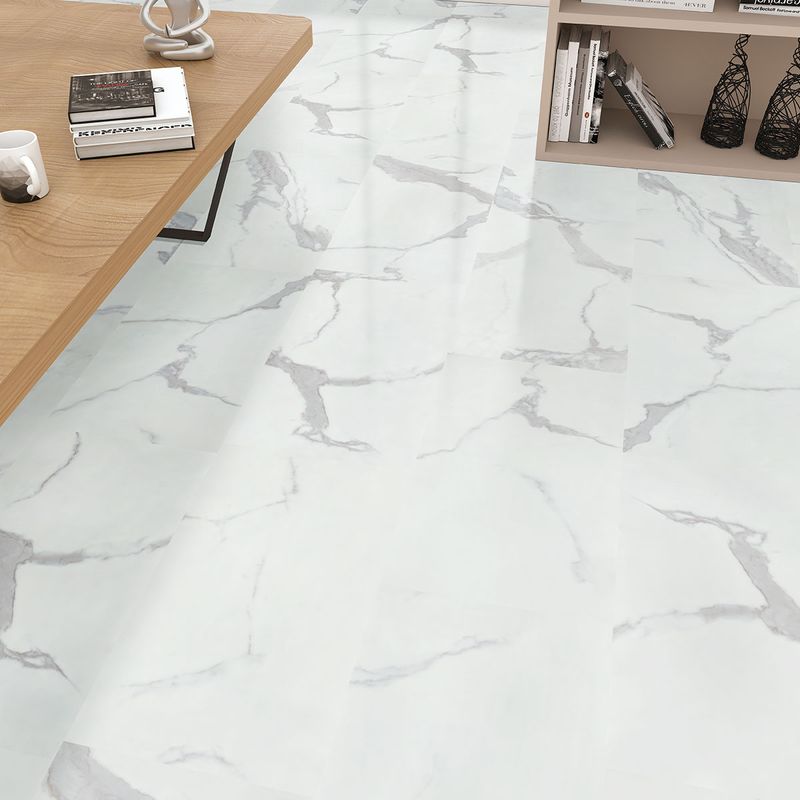
Mimicking natural stone, ceramic, or concrete, LVT brings high-end looks without the maintenance hassles. Advanced printing technology creates stunning visual effects that capture the subtle variations found in natural materials.
Pros: Warmer and softer than real tile, waterproof, easy to clean, and available in creative patterns. Cons: Premium pricing tier. Durability Rating: 8/10
7. Peel and Stick Vinyl Tiles
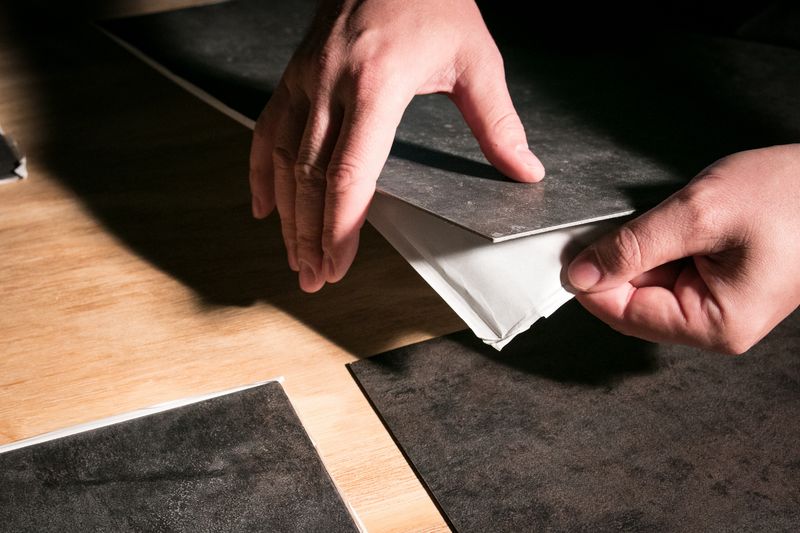
The ultimate DIY-friendly option comes with adhesive backing—just peel off the paper and press into place. Perfect for renters or quick makeovers when time and budget are limited.
Pros: No special tools required, instant gratification, and easy replacement of damaged pieces. Cons: Shorter lifespan and less water resistance. Durability Rating: 4/10
8. Vinyl Plank Flooring
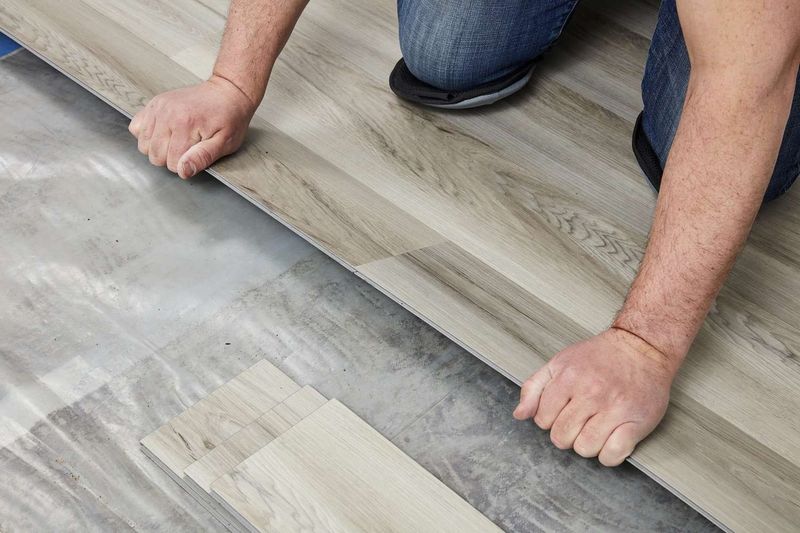
The standard version of plank-style vinyl lacks some premium features of luxury lines but delivers solid performance. Typically 4-7 inches wide with basic click-together or glue-down installation methods.
Pros: More affordable than luxury versions, good water resistance, and easy DIY installation. Cons: Thinner wear layers mean less scratch protection. Durability Rating: 6/10
9. Glue-Down Vinyl Flooring
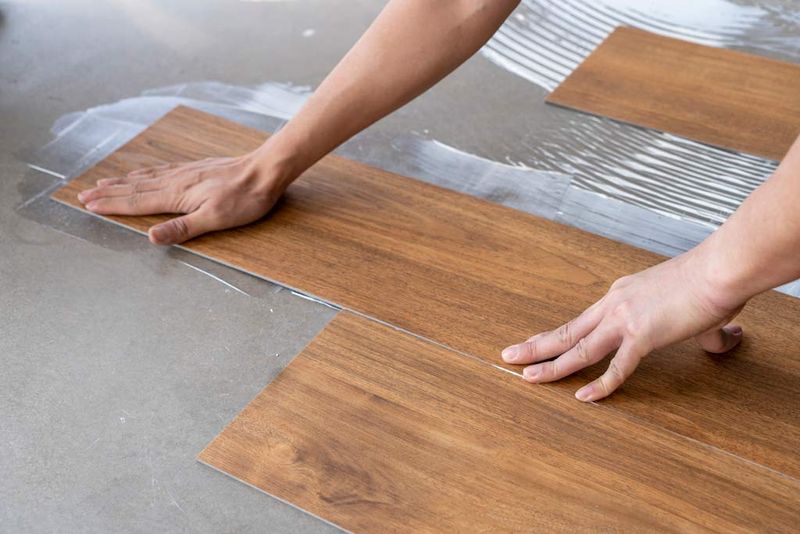
Adhesive-based installation creates a permanent bond with the subfloor, preventing any movement or shifting over time. Particularly valuable in high-traffic commercial settings where stability matters most.
Pros: Superior stability, no lifting or separating, works well with floor heating systems. Cons: Difficult removal during future renovations. Durability Rating: 7/10
10. Loose Lay Vinyl Planks
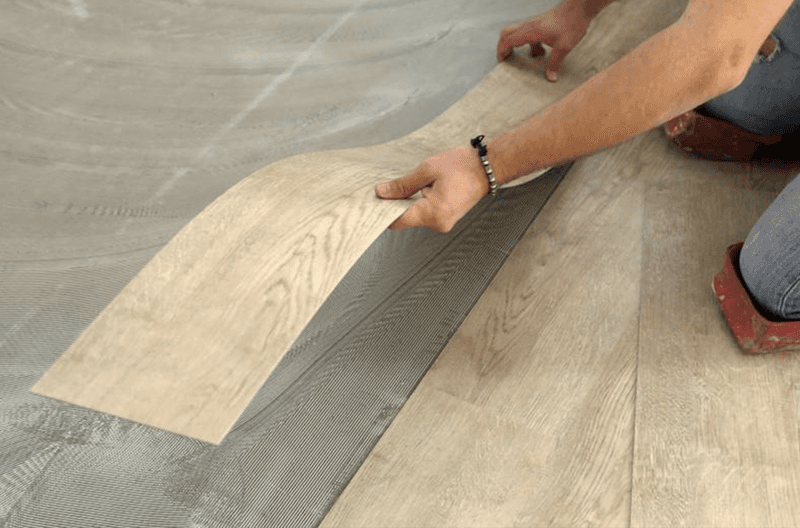
Friction-fit installation requires no glue, locking mechanisms, or fasteners. The heavy backing with rubber components creates enough grip to stay in place through friction alone.
Pros: Fastest installation method, easy access to subfloor if needed, and simple replacement of damaged pieces. Cons: Not suitable for areas with rolling loads. Durability Rating: 5/10
11. Fiberglass-Reinforced Vinyl

Sheet vinyl with integrated fiberglass layer adds dimensional stability and resistance to tearing. The fiberglass prevents the material from expanding and contracting with temperature changes while adding strength.
Pros: Lies flat without curling edges, resists rips and tears, and offers better durability than standard sheet vinyl. Cons: Still requires careful subfloor preparation. Durability Rating: 7/10
12. Printed Vinyl Flooring
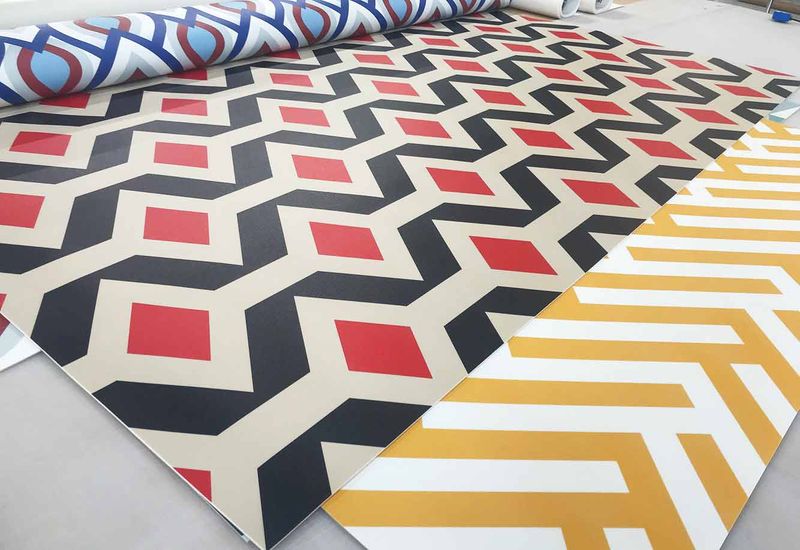
Focusing on visual appeal, printed vinyl uses advanced digital printing technology to create vibrant patterns impossible to achieve with natural materials. Bold geometrics, custom designs, and photorealistic images open creative possibilities.
Pros: Unlimited design options, statement-making potential, and opportunity for custom branding in commercial spaces. Cons: Wear layer quality varies widely. Durability Rating: 5-7/10
13. Enhanced Urethane Vinyl
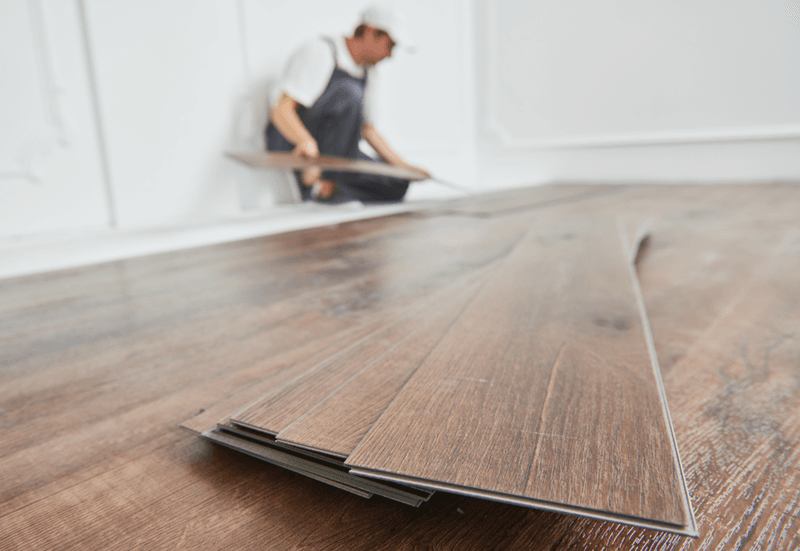
Premium vinyl featuring advanced urethane wear layers infused with ceramic beads or aluminum oxide. These particles create superior resistance to scratches and abrasions compared to standard urethane coatings.
Pros: Outstanding scratch resistance, maintains appearance longer, and better performance with pet claws. Cons: Higher cost than basic wear layers. Durability Rating: 9/10
14. Acoustic Vinyl Flooring
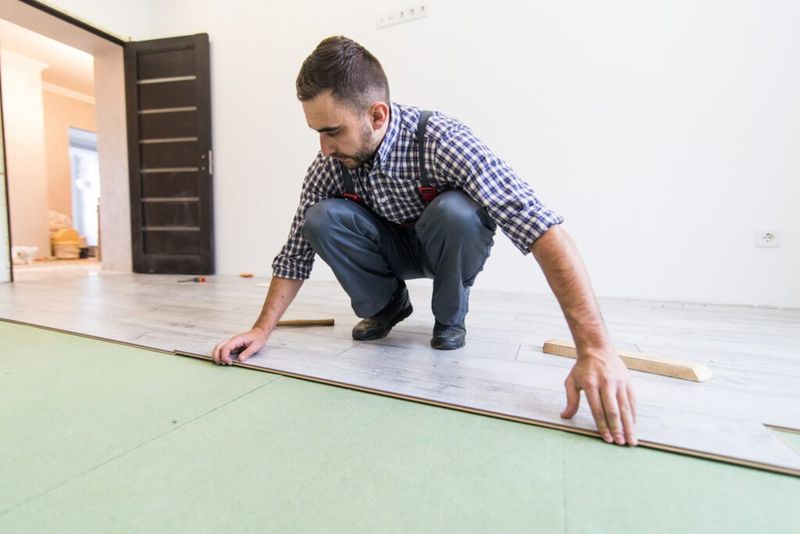
Specially engineered with sound-dampening underlayment attached to reduce noise transmission between floors. Particularly valuable in multi-story buildings, apartments, and homes where noise control matters. Pros: Reduces impact noise by 15-20 decibels, warmer underfoot, and adds comfort. Cons: Thicker profile may require door adjustments. Durability Rating: 7/10
15. Magnetic Vinyl Flooring
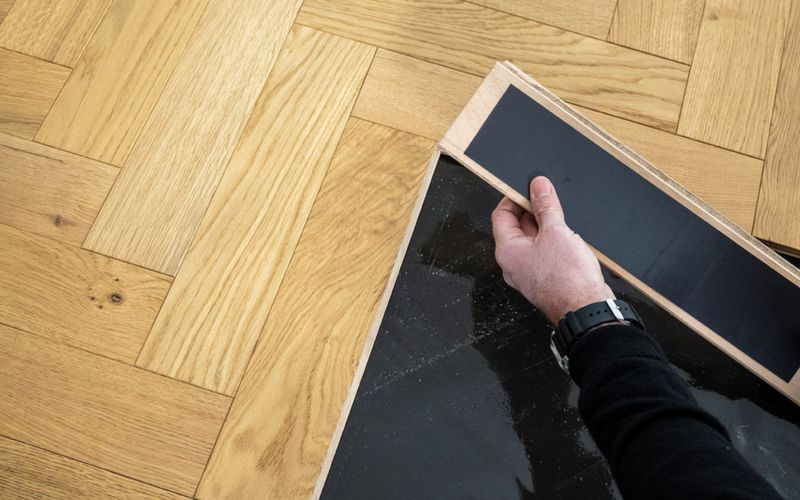
Revolutionary installation system uses magnetic backing on both the flooring and a special underlayment. The magnetic attraction holds pieces firmly in place without adhesives or locking mechanisms.
Pros: Easiest replacement of damaged sections, reusable when moving, and perfect for temporary installations. Cons: Higher initial cost for the magnetic underlayment. Durability Rating: 6/10
16. Commercial-Grade Vinyl Flooring
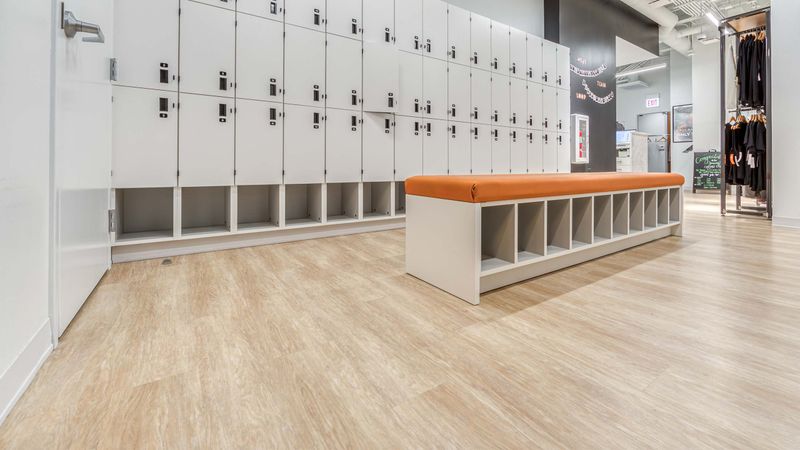
Built specifically for high-traffic business environments with wear layers typically 20-40 mil thick (compared to residential 6-12 mil). The increased thickness translates directly to longer lifespan under punishing conditions.
Pros: Superior wear resistance, commercial warranties, and designed for rolling loads. Cons: Higher cost and sometimes limited design options. Durability Rating: 10/10
